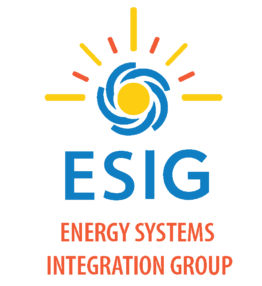
- This event has passed.
G-PST/ESIG Webinar Series: Advances in the Use of Probabilistic Resource Adequacy Methods
February 26 @ 4:00 pm - 5:00 pm EST
Featured Speaker: Aidan Tuohy, Director, Transmission Operations and Planning, EPRI

Aidan Tuohy
About the Webinar: Ensuring resource adequacy – a measure of whether the current, or projected, resource mix is sufficient to meet capacity and energy needs for a particular grid– is crucial for ensuring a reliable energy transition. Probabilistic approaches have traditionally been used to assess resource adequacy, but in light of the changing nature of the resource mix, increased demand participation and the recent implications of extreme events, there is a need to revisit how resource adequacy is assessed. As recent events have shown, existing methods, models and tools for assessing resource adequacy do not always accurately portray risk and identify the potential for shortfalls, particularly during periods of extreme system stress such as cold weather. In this webcast, we will hear about the recently completed EPRI Resource Adequacy for a Decarbonized Future Initiative (www.epri.com/resource-adequacy). This project, which ran from mid-2021 to end of 2023, addressed a number of issues and challenges related to resource adequacy (RA). As resources such as wind/PV, batteries, demand flexibility and hybrids, as well as future resources such as hydrogen and long duration storage, enter the system, models and tools need to be able to include their characteristics compared to traditional resources. EPRI’s project built on other ongoing industry work, including the ESIG Resource Adequacy Task Force, and focused on a few main workstreams. A Process workstream focused on the metrics, criteria and scenarios used in RA studies. Here, recommendations on metrics to be assessed and the insights they provide were described, while methods for identifying short and long term scenarios to be studied were developed. A Models and Data workstream investigated existing and emerging approaches to model supply and demand side resources, as well as data required to characterize these resources. Recommended approaches were then provided, with different levels of detail based on how important a given resource type is to the system being studied. A Software Tools workstream surveyed existing and emerging tools for RA assessment, with the result being a greater understanding of current capabilities of commercial and research grade software, as well as new approaches and gaps. Underlying all of these workstreams, Case Studies of 6 different North American systems were used to support the material developed and identify how risk is evolving in each area. Here, the final deliverables, all of which will be public, will be described, with a deep dive on a number of them. The session will conclude with a discussion on next steps for ensuring RA studies leverage the latest approaches, and future work in the area.
About the Speaker: Aidan Tuohy is the Director of EPRI’s Transmission Operations and Planning R&D Group, managing a portfolio of near and long-term research, thought leadership and applications, with a focus on supporting the reliable, resilient and affordable transition to a clean electricity system. His team of over 70 individuals have deep subject matter expertise spanning long term planning, operations planning, real time operations, system protection and market design and operations.
He received a Bachelor of Engineering degree in electrical/electronic engineering from University College Cork, Ireland in 2005. He completed his doctoral degree at the University College Dublin Electricity Research Centre in 2009, on the topic of operating and planning issues in carbon-constrained power systems. During his studies, he spent time in both Risoe-DTU (Denmark) and the National Renewable Energy Laboratory.
Moderator: Charlie Smith, Executive Director, ESIG
Registration Cost: FREE
Q&A Session: We will be using the slido platform for Q&A. Please submit your questions and follow-along during the event at this link.

